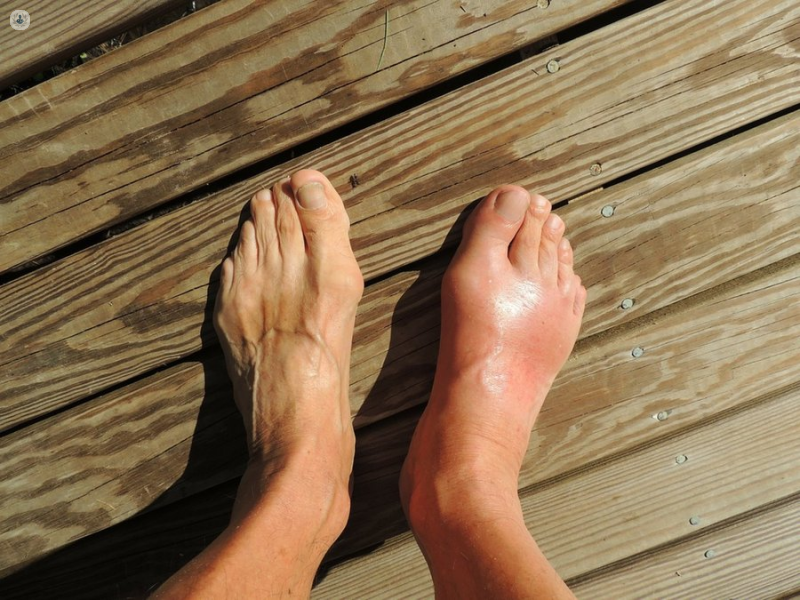How is gout managed?
Written in association with:Gout is a common and painful form of inflammatory arthritis caused by the accumulation of urate crystals in the joints. This results from elevated levels of uric acid in the blood, often due to dietary factors, genetics, or medical conditions like kidney disease. Managing gout effectively involves addressing both acute flare-ups and long-term prevention strategies.

The management of acute gout attacks focuses on reducing pain and inflammation. Nonsteroidal anti-inflammatory drugs (NSAIDs) such as ibuprofen are often the first line of treatment.
Colchicine, another anti-inflammatory medication, can be effective when taken early in an attack. In more severe cases, corticosteroids may be prescribed to quickly reduce swelling and discomfort. Resting the affected joint and applying ice packs can provide additional relief during acute episodes.
Preventing future gout attacks is a key aspect of long-term management. Lifestyle modifications play a crucial role. Maintaining a healthy weight and adopting a diet low in purine-rich foods such as red meat, seafood, and alcohol can help lower uric acid levels.
Drinking plenty of water to stay hydrated and limiting sugary beverages are also recommended. Regular exercise and avoiding crash diets are important for overall health and gout prevention.
Medications are often used for long-term control of gout. Uric acid-lowering drugs like allopurinol or febuxostat help reduce uric acid production, while others such as probenecid increase the elimination of uric acid through the kidneys. These treatments require regular monitoring to ensure their effectiveness and to prevent potential side effects.
Patient education is a cornerstone of effective gout management. Understanding the triggers and recognizing early symptoms of gout can empower individuals to take prompt action and prevent severe flare-ups. Regular follow-ups with a healthcare provider can help tailor treatment plans to individual needs and address any coexisting health conditions.
With a combination of lifestyle changes, effective medication, and patient awareness, gout can be managed successfully, enabling individuals to lead active and comfortable lives while minimizing the risk of complications.


